From Gangs of New York (2002) To Phantom Thread (2017), here’s my ranking of the best Daniel Day Lewis movies.
In over three decades of his acting career, Daniel Day Lewis has left us with a tapestry of masterful performances. He had the luxury of choosing roles that only interested him. At the same time, he painfully and mesmerizingly transcended his inner being to embody the onscreen characters. Born to a poet father and a radio actress mother, Day Lewis’ parents were famous in their time. His first appearance on-screen was at the age of 14. Lewis played an uncredited role of a young car vandal in John Schlesinger’s Sunday Bloody Sunday (1971). He also played a bit part in Gandhi (1982) as a racist thug. Daniel has a keen interest in woodwork. It kind of reflects his craftsmanship to create character profiles from scratch. His meticulous approach to acting is something that can’t be easily taught.
What films did Daniel Day-Lewis win an Oscar for?
Daniel Day Lewis won the Best Actor Academy Award thrice, the only actor to do so, for My Left Foot (1989), There Will Be Blood (2007), and Lincoln (2012). The previous generation method actors, despite undergoing rigorous changes, retained some identifiable shtick in their characters. But Daniel Day Lewis surpassed such barriers and gracefully disappeared into the roles he played. So, here’s my ranking of the best films of the acting genius:
Best Daniel Day Lewis Movies, Ranked
11. The Last of Mohicans (1992)
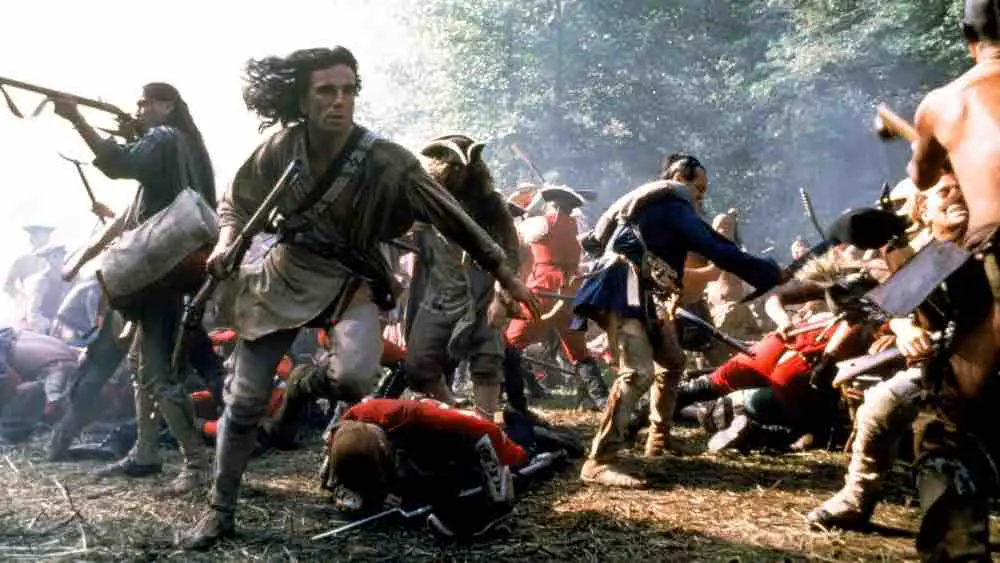
The Last of Mohicans by Michael Mann was based on James Fenimore Cooper’s classic historical novel. Daniel Day-Lewis plays Hawkeye, an English Frontiersman raised by Native Americans. The narrative is set in 1757 during the French and Indian war (1754-1763). Day-Lewis went to live in the mountains of North Carolina to prepare for the role. He hunted games and learned to skin those animals. He also learned to build canoes, trained to handle tomahawks. And the characters’ 12 pound old flint-lock gun never left his side.
Day-Lewis considered the role of Hawkeye to be physically challenging. And so, he set to build up his stamina and torso (working five times a week for almost 6 months). The uber perfectionist director well complimented Lewis’ serious and dedicated performance. Mann, for his part, immensely concentrated on replicating the atmosphere of the era. He and his crew even accurately reconstructed the huge Fort William.
Watch: Amazon Prime Video
10. My Beautiful Laundrette (1985)
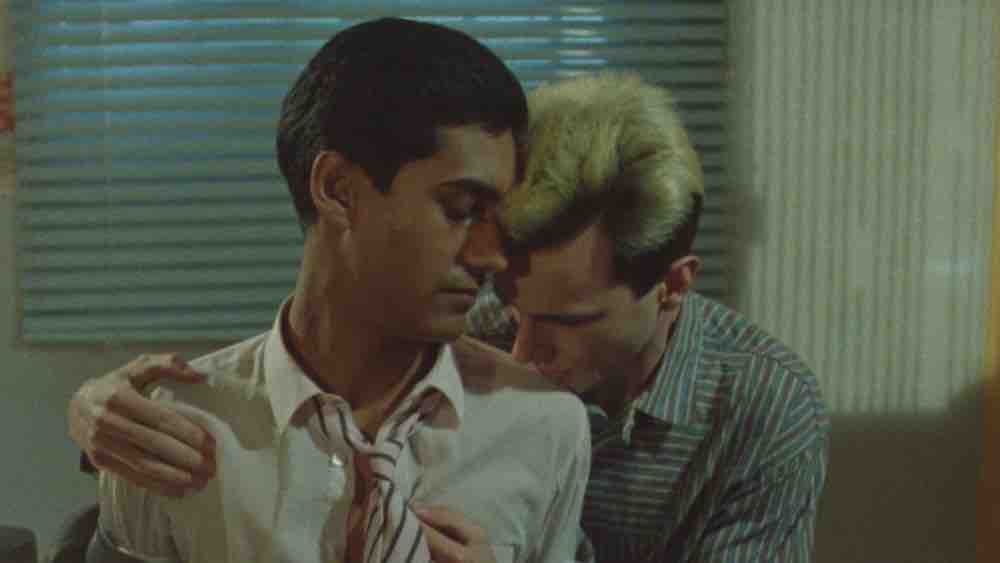
Stephen Frears’ coming-of-age saga is set in London’s Pakistani community. It chronicles the gay romance between laundromat managing Omar and reformed punk Johnny. Novelist and playwright Hanif Kureishi wrote the film, his first screenwriting credit. Back in 1985, neither Stephean Frears nor Daniel Day Lewis were popular names. Frears wondered if Day Lewis, the soft-spoken guy, is the right choice to play the tough guy. Apart from a few TV roles, the actor was only known as poet Laureate Cecil Day Lewis’ son. But when the shooting commenced, Day Lewis arrived with right clothes and spoke in a perfect working-class accent.
Johnny was exactly opposite to the role Daniel Day Lewis played earlier in A Room with a View (1985) as the straight-laced Cecil Vyse. Both these roles fortified his reputation, allowing him to channel method acting later in unprecedented ways.
Watch: HBO Max, Hulu, Amazon Prime Video
9. The Age of Innocence (1993)
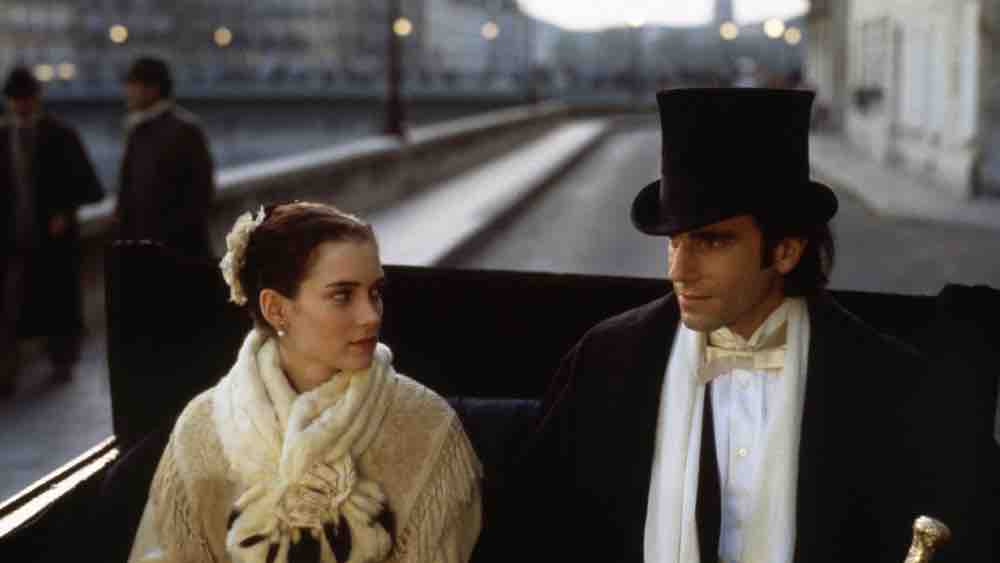
Martin Scorsese films were best known for their crescendos of shocking violence. Nevertheless, time and again, the filmmaker has proved his versatility by making nuanced, unbloody dramas. With The Age of Innocence, he not only drifted away from his pet themes, but also made one of the best literary adaptations. Set in 1870s, the story is a romantic triangle between Newland Archer, married Countess Olenska and May Welland, Olenska’s cousin whom Archer is to marry. To prepare for this tale of unconsummated love, Day-Lewis read a lot of books on 19th century etiquette. He insisted on getting the cologne from the period and moved around the set carrying a walking stick. The trio of splendid performances from Day Lewis, Michelle Pfeiffer and Winona Ryder immersed us in the characters’ longings and passion, who otherwise remain restrained and aloof.
Watch: Hulu
8. The Unbearable Lightness of Being (1988)
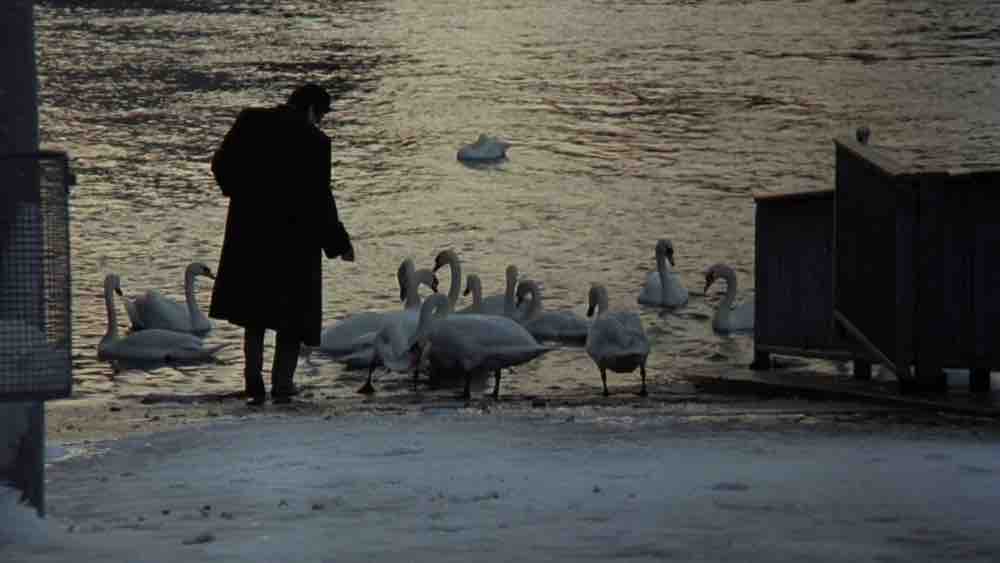
Kaufman’s adaptation of 1984 best-selling novel tells the story of a womanizing Czech brain surgeon named Tomas. His casual run-ins with women cease when he meets the beautiful, naïve waitress Tereza (Juliette Binoche). They fall in love and tie the knot. The political tensions of the era (late 60s Russian intervention) plus Tomas’ unchanging lifestyle make everything unbearable. In preparation for the role of Tomas, Day-Lewis learned some Czech, although the film was set in English. He played the character with a certain disengagement to reflect Tomas’ aversion towards responsibilities and commitment.
The film was based on Milan Kundera’s novel, whose works are primarily known for eroticism. In fact, this was one of the rare American films to depict complex adult sexuality without any sensationalism.
Watch: YouTube, Amazon Prime Video
7. The Crucible (1996)
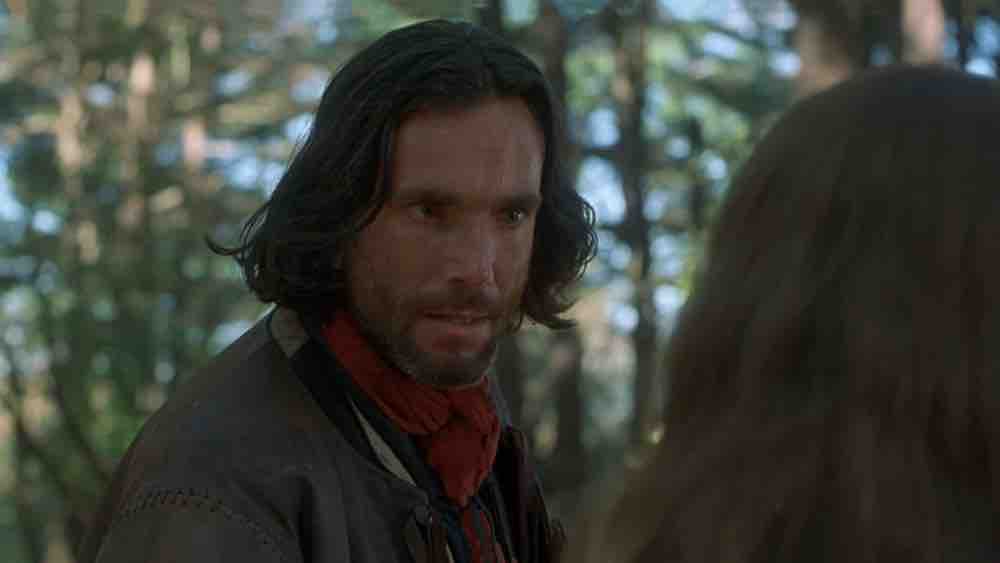
Nicolas Hytner’s The Crucible is based on Arthur Miller’s play about Salem witch trials (in 1692). Miller wrote the play in 1953 to run the parallels between witch trials and overzealous Senator Joe McCarthy’s House Un-American Activities Committee hearings. Regrettably, the film adaptation is not as great as the text. Yet, the film engrosses us throughout, thanks to incendiary performances from the top class cast. Daniel Day-Lewis plays the role of a farmer named John Proctor living with sickly wife Elizabeth. John’s life is uprooted when he succumbs to the carnal desires of 17-year old Abigail (Winona Ryder). In a fit of rage, Abigail starts up a frenzy of false accusations citing Elizabeth as devil worshipper.
Day-Lewis lived in the set’s replica of a village. He stayed there without electricity or running water. Arguably, Lewis’ John is the film’s most complex role and he performs it with a quiet power. [Tidbit: Daniel Day-Lewis is married to Rebecca Miller, daughter of Arthur Miller (she directed him in The Ballad of Jack and Rose)].
Watch: Amazon Prime Video
6. Gangs of New York (2002)
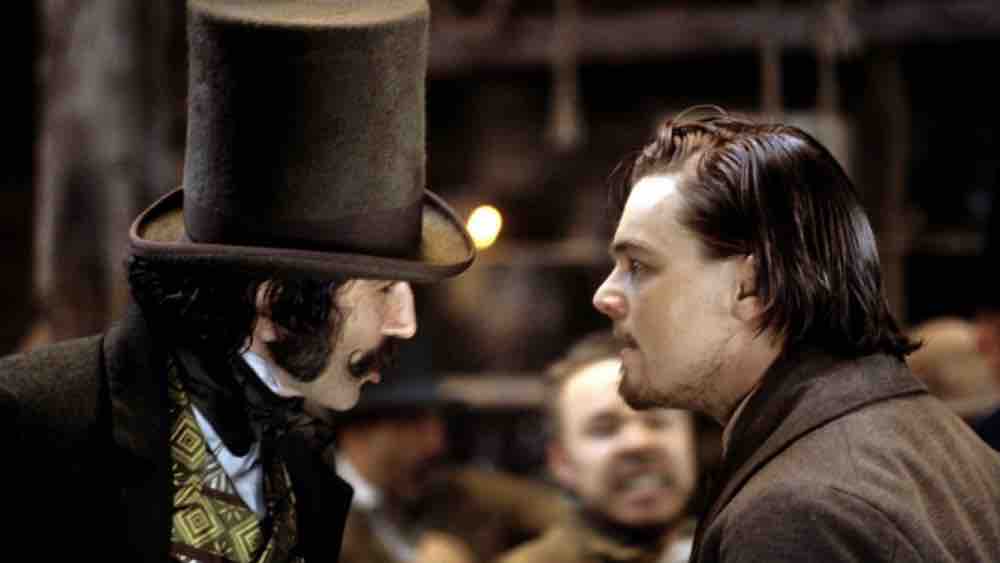
Gangs of New York isn’t Martin Scorsese at his best, but deserves a watch for Daniel Day-Lewis. The film was loosely based on Herbert Asbury’s 1927 non-fiction book of the same name. Like Silence (2016), this too was a passion project for Scorsese, who first conceived the idea for Gangs of New York in 1978. However, the final output was eschewed of complexities and came off as a simple revenge drama. The greatness of Day-Lewis’ performance obviously overshadows some of the narrative’s flaws.
In fact, the preparation that went in to play Bill the Butcher was insane, ranking alongside My Left Foot. He trained as a butcher and wandered around Rome (the film was shot there) in a 19th century threadbare coat. To stay in character he fought strangers and subsequently caught pneumonia. All these quests for perfection brought glorious results on screen. His body language and cold hard stares are lessons on how to approach a villain character. Daniel Day-Lewis makes Bill the Butcher both charming and frightening.
Watch: YouTube, Hulu
5. In the Name of the Father (1993)
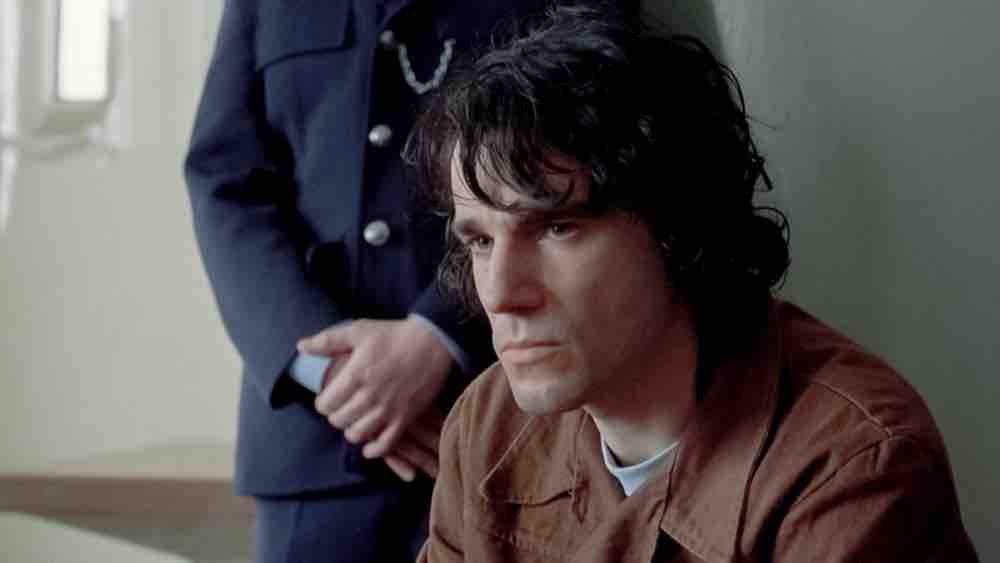
“Of living actors, I feel it’s only him (Daniel Day-Lewis) and Meryl Streep who have that quality; like they’ve made some Faustian pact with the devil and truly become the person they’re playing,” said the English actor Paul Bettany in a Guardian article recalling his experience of watching Day-Lewis play Gerry Conlon. Jim Sheridan’s hard-hitting drama revolves around wrongly convicted small-time criminal Gerry Conlon, sentenced to life in prison. Conlon’s forced confession is one of the most memorable moments in the film. A group of well-dressed British officers gang up on Conlon, asking him to take the rap for IRA pub bombing of 1974. He smoothly and elegantly manoeuvres emotions of rage, sorrow, and fear.
The ethno-nationalist conflict in Northern Ireland between 1968 and 1998 is addressed by the title The Troubles. In the Name of the Father was one of the complex cinematic portrayals of this turbulent era. It also doubles up as an understated examination of love between a father and son.
Watch: YouTube
4. My Left Foot (1989)
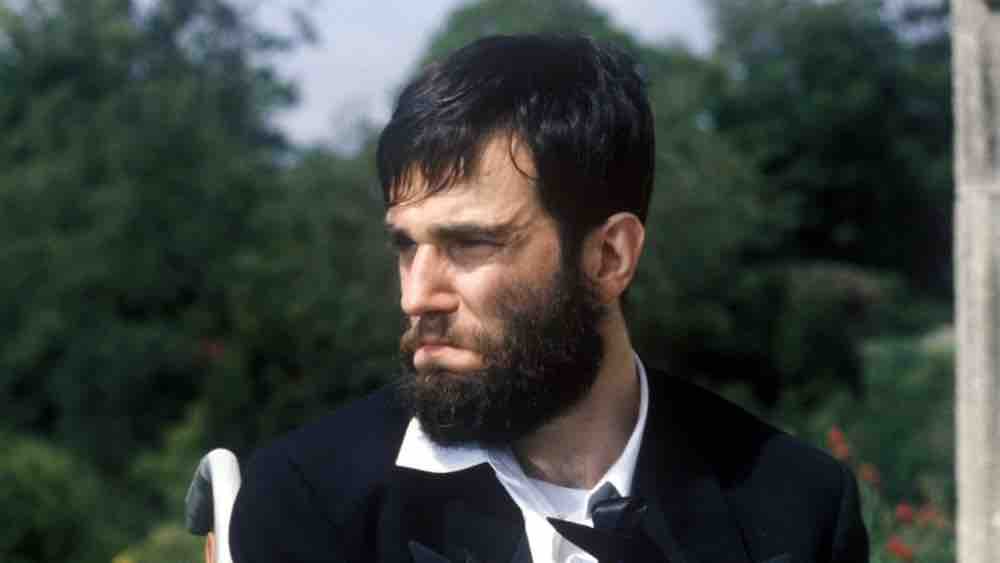
Jim Sheridan’s uplifting biopic is about Irish writer Christy Brown, afflicted by cerebral palsy. Paralyzed from birth, Brown learned to write and draw using the toes of his left foot. Daniel Day-Lewis meticulously prepared himself to fully inhabit Brown’s personality. Brown lived with his 12 siblings in a cramped two-bedroom apartment in Dublin. Day-Lewis spent much time with Brown’s siblings to accurately portray him (Brown passed away in 1981 at 49). Here’s what Christy’s younger sister Ann had to say about the actor’s dedication. “I remember walking into the canteen and someone was feeding him the same way we used to feed Christy and I found that really upsetting because it was like looking at my brother. I’d to get up and leave; I was overcome with emotion because he played him so well.”
One of my favorite scenes is when Christy feels humiliation over Dr. Eileen’s insistence on platonic love. Dr. Eileen has helped Christy with his speech. But the anguish and anger passes through Christy’s face when he realizes Eileen’s nature of love. He heart-breakingly says “I’ve had nothing but platonic love all my life. Do you know what I say? F*** Plato! F*** all love that is not 100 percent commitment!” Day-Lewis expresses distress and pain while perfectly staying in character. This performance faced its share of criticisms and some tittered at his method-acting approach. Nevertheless, no other actor could even dream of bringing such craftsmanship to acting.
Watch: Pluto TV
3. Phantom Thread (2017)
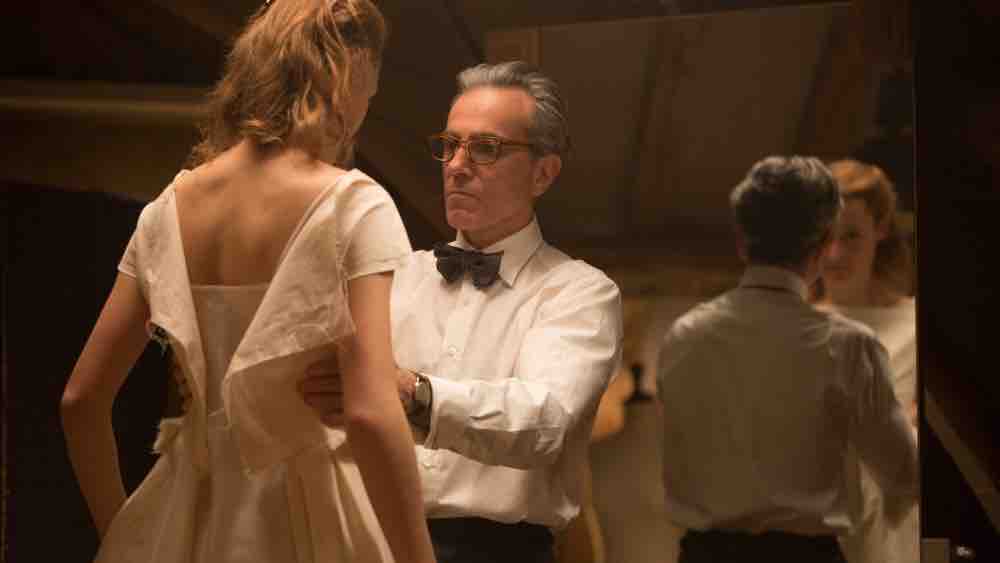
What was Daniel Day Lewis’ last film? The actor in his swansong performance perfectly brings out the nuanced depths of Anderson’s complicated story of love. He plays the role of an esteemed 1950s London-based dressmaker named Reynolds Woodcock. The man like most of the geniuses lives a regimented life, where great care and precision is taken to realize his craft. But Reynolds’ adherence to routine is threatened when he is instantly drawn to his model and muse. Phantom Thread is a film about an artist’s all-consuming obsession. It’s rare to witness such finely crafted feature on the extremes of love. And only a performer like Day-Lewis can intimately explore the vehement and vulnerable sides of the character. The actor’s quiet control is on full display here, demanding our attention on his subtle facial expressions.
Watch: Netflix
2. Lincoln (2012)
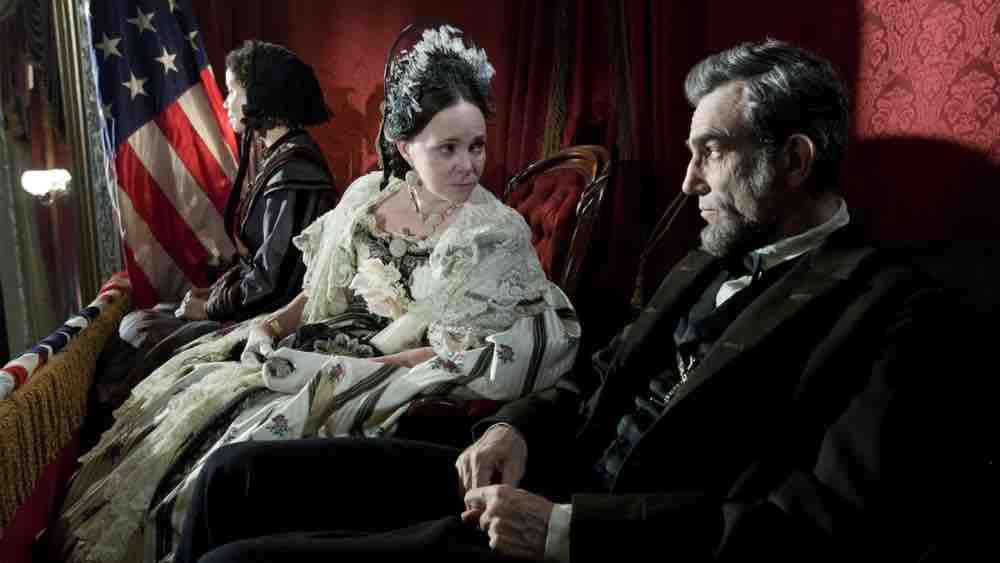
Steven Spielberg in Lincoln wanted to portray the intricate character nature of one of the legendary historical figures. Spielberg didn’t want to mythicize Mr. Lincoln. In other words, he wanted a Lincoln of blood and flesh. The illustrious American President was well known for his integrity. The film celebrates this integrity by addressing all the complications and dilemmas within him. And Daniel Day-Lewis becomes the perfect choice to offer a humanistic portrayal of Lincoln. With a slightly hunched back stature and a face marked with wrinkles, Day-Lewis humanizes the otherwise noble figure and precisely showcases a life, strained by incessant personal loss and political conflicts.
In the hands of a lesser actor, the film could’ve easily turned melodramatic. The brilliance of Day-Lewis’ Lincoln lied in the way he efficiently grounds his character. As usual, he dwells deep into his character’s consciousness and is gradually reborn as another man with a distinct accent and voice. My favorite moment in the film is his impassioned speech, citing the significance of the constitution.
Watch: Amazon Prime Video
1. There Will Be Blood (2007)
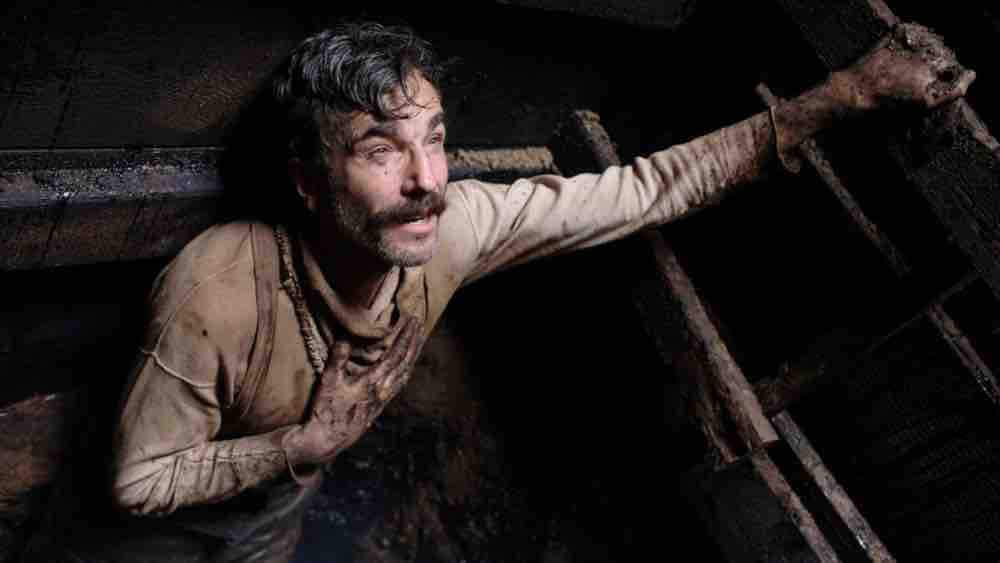
There Will be Blood from Paul Thomas Anderson is an epic character study of oil baron anti-hero Daniel Plainview. “Voice is the fingerprint of the soul,” said Day-Lewis in an interview with Oprah Winfrey. Daniel Plainview’s character was first born after Day-Lewis nailing the perfect voice for him. He used oral histories from the time to create the character’s distinctive voice. An important influence for the voice is said to be the old recordings of renowned director John Huston. After the birth of the booming voice, the actor’s eyes played a significant role. The eyes were rarely laced with tenderness, but predominantly blazed like the burning oil, acutely expressing greed and rage. He took an entire year to get ready for the role and it’s pretty evident in his incendiary performance.
They say that ‘with power comes responsibility’. For Daniel Plainview ‘power drives him avaricious and mad.’ This loss of humility and descent into insanity is magnificently displayed through Day-Lewis’ versatile range of emotions. The climactic scene where Plainview taunts his archenemy Eli Sunday, a corrupted priest, is unforgettable. The eerie, over-the-top declaration ‘I Drink Your Milkshake’ is one of the most extraordinary moments in cinema.
Watch: YouTube
Daniel Day-Lewis embodied every role with grace and perfection. As a cinephile, I am happy to live in this era and witness one of the greatest screen actors in action. Announcing his retirement after the release of Phantom Thread, the actor said in a public statement, “Now I want to explore the world in a different way.” And we cinema-lovers would be eternally grateful to him for making us see the world in a different way. His rich legacy of work will continue to live on.

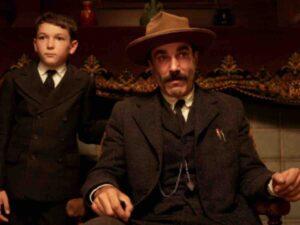
2 thoughts on “11 Best Daniel Day Lewis Movies, Ranked”
Comments are closed.